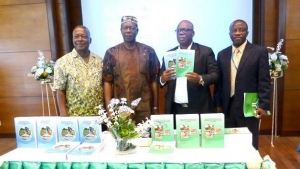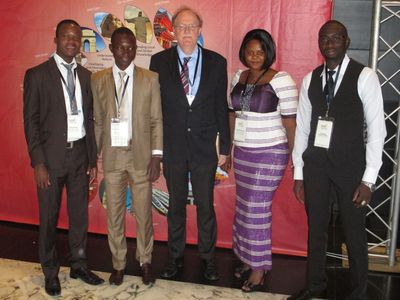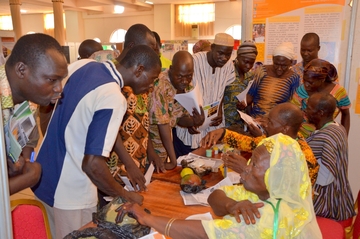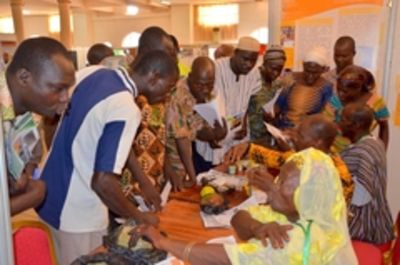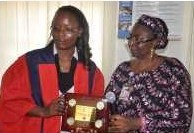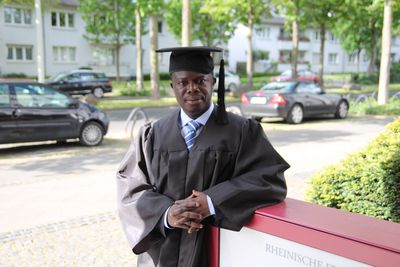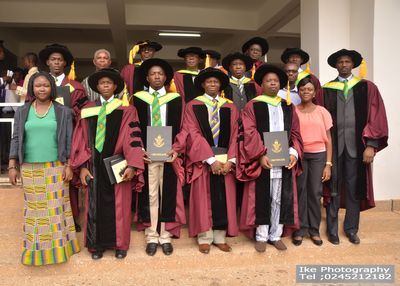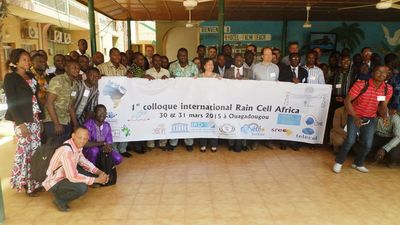Commitment to the implementation of natural resources management policies in Africa will help in enhancing the contribution of natural resources to the continent’s
development.
This was one of the key messages in the closing remarks of the Director of the United Nations University Institute for Natural Resources in Africa (UNU-INRA), Dr. Elias T.Ayuk, at a book launch event organised by the Institute in Accra.
Dr. Ayuk observed that there is a continuum of six I’s (ideas, innovation, incentives, institutions,infrastructure and implementation), which need to be addressed to promote development in Africa.
Citing the agricultural sector as an example, he emphasised the need for innovative ideas and technologies in processing food crops for domestic consumption and exports. He, however, acknowledged that incentives would boost innovations, and appealed to African governments and other stakeholders to help promote productivity of the agricultural sector with adequate financial support that target small and medium-size enterprises.
Dr. Ayuk stressed the need for strong institutions and massive infrastructure development to promote the growth of many African countries.
“Africa really needs strong leadership and infrastructural improvement at all levels to accelerate growth. We need to enhance capacity at our institutions to improve efficiency and expand our market infrastructure to promote export,” Dr. Ayuk reiterated.
The books launched by the Institute at the event are entitled “Economic and Financial Analyses of Small and Medium Food Crop Agro-Processing Firms in Ghana” and Harnessing Land and Water Resources for Improved Food Security and Ecosystem Services in Africa”.
The first book “Economic and Financial Analyses of Small and Medium Food Crop Agro-Processing Firms in Ghana” reports on a research project that analysed agro-processing firms’ economic situations in Ghana.
Findings from the study revealed that the agro-processing subsector in Ghana is characterised by high informality with lack of business planning, poor financial records keeping and financial analysis, and absence of risks and performance monitoring. High interest rate of loans is also identified as one of the factors limiting the profitability of agro-processing firms.
One of the policy options explored in the book is the development of customised innovative and inclusive financial products and services to meet the specific needs of micro, small and medium food crops processing enterprises to improve their profitability. It also proposes increased awareness on quality control and standardization as well as capacity development as potential strategies to promote the growth of the agro-processing sub-sector.
The second book “Harnessing Land and Water Resources for Improved Food Security and Ecosystem Services in Africa” is a compilation of research papers that draw attention to the impact of human activities on land and water resources. Issues such as wastewater management, water pollution,land degradation, massive land acquisition, and climate change impact on food security were discussed in the book. Among the potential policy directions, the book calls for the provision of alternative livelihoods such as the promotion of aquaculture, recycling of agro-wastes for biofuel and soil amendment measures to halt land degradation and water pollution in Africa.
Commenting on the two books at the launch, the Director of Agri-business of the Ministry of Food and Agriculture (MoFA), Ghana, Mr. Nicholas Neequaye, called for more private sector partnerships to address issues of post-harvest losses, land degradation and water pollution in Africa. He said “we must admit that addressing these challenges properly calls for private sector partnership to complement Governments’ efforts”.
The production of these knowledge products, according to the UNU-INRA Director is to provide empirical evidence for policy makers and other stakeholders on the state of natural resources in Africa. This, he indicated, is in line with the Institute’s mandate to promote thsustainable use of natural resources in Africa, for development.
About UNU-INRA
UNU-INRA’s work centres on Africa’s two most important endowments — its human and natural resources. It aims at strengthening capacities at universities and other national institutions to conduct research and produce well-trained individuals with the ability to develop, adapt and disseminate
technologies that promote the sustainable use of the continent’s natural resources. UNU-INRA operates out of its main office at the University of Ghana campus. It has also established operating units (OUs) at the University of Cocody, Abidjan, Ivory Coast, University of Yaoundé I, Yaoundé, Cameroon, University of Zambia, Lusaka, Zambia, University of Namibia, Windhoek, Namibia, and Institute for
Food Technology (ITA) of the Ministry of Mines and Industry in Dakar, Senegal.
Photo from left to right: Prof. Emmanuel Owusu-Bennoah, Professor, College of Agriculture & Consumer Sciences,University of Ghana and member of UNU-INRA Advisory Board, Dr. Laurent Sedogo, Director, WASCAL, Mr. Nicholas Neequaye, Director of Agribusiness,(MoFA) and Dr. Elias. T. Ayuk, UNU-INRA Director.
Source:UNU-INRA.


